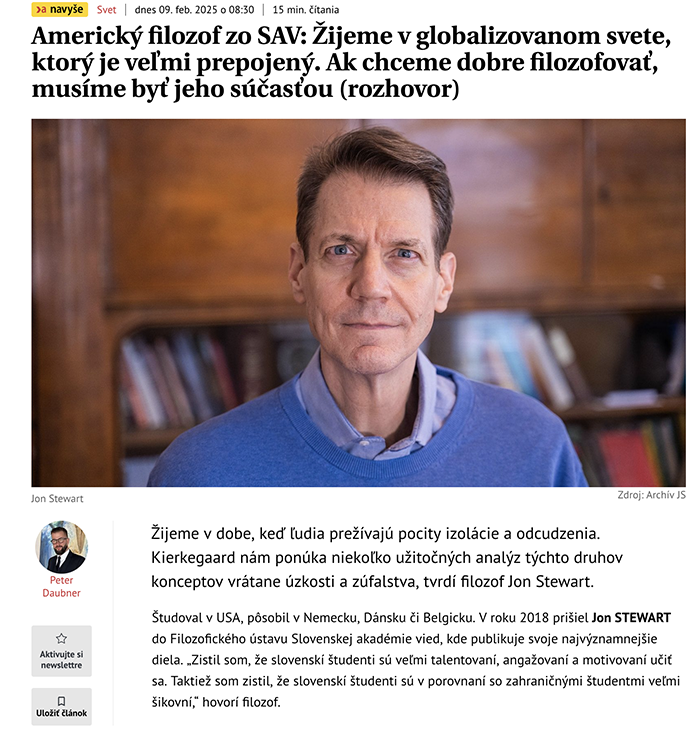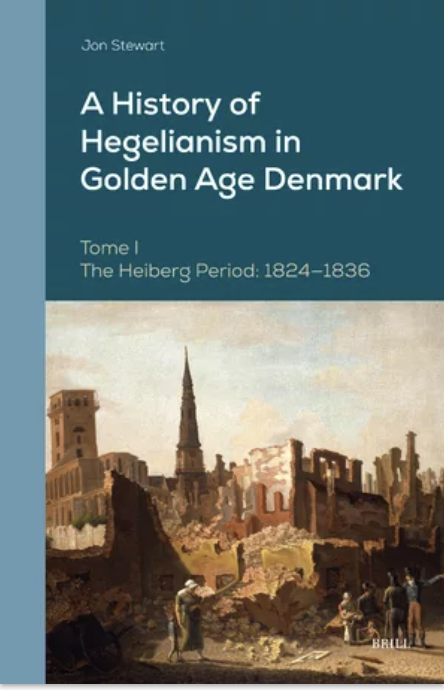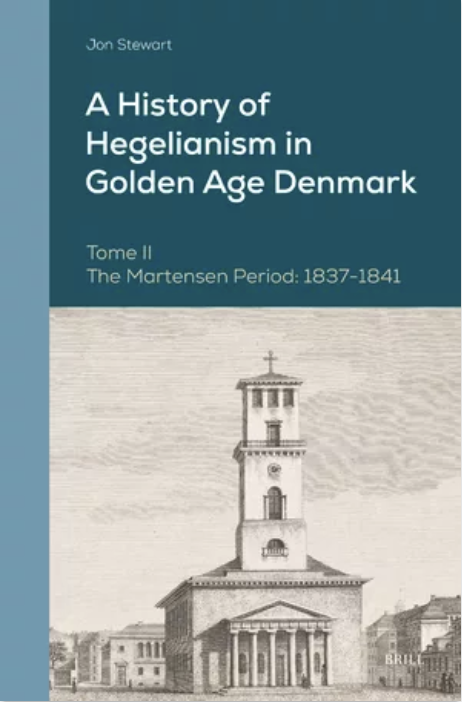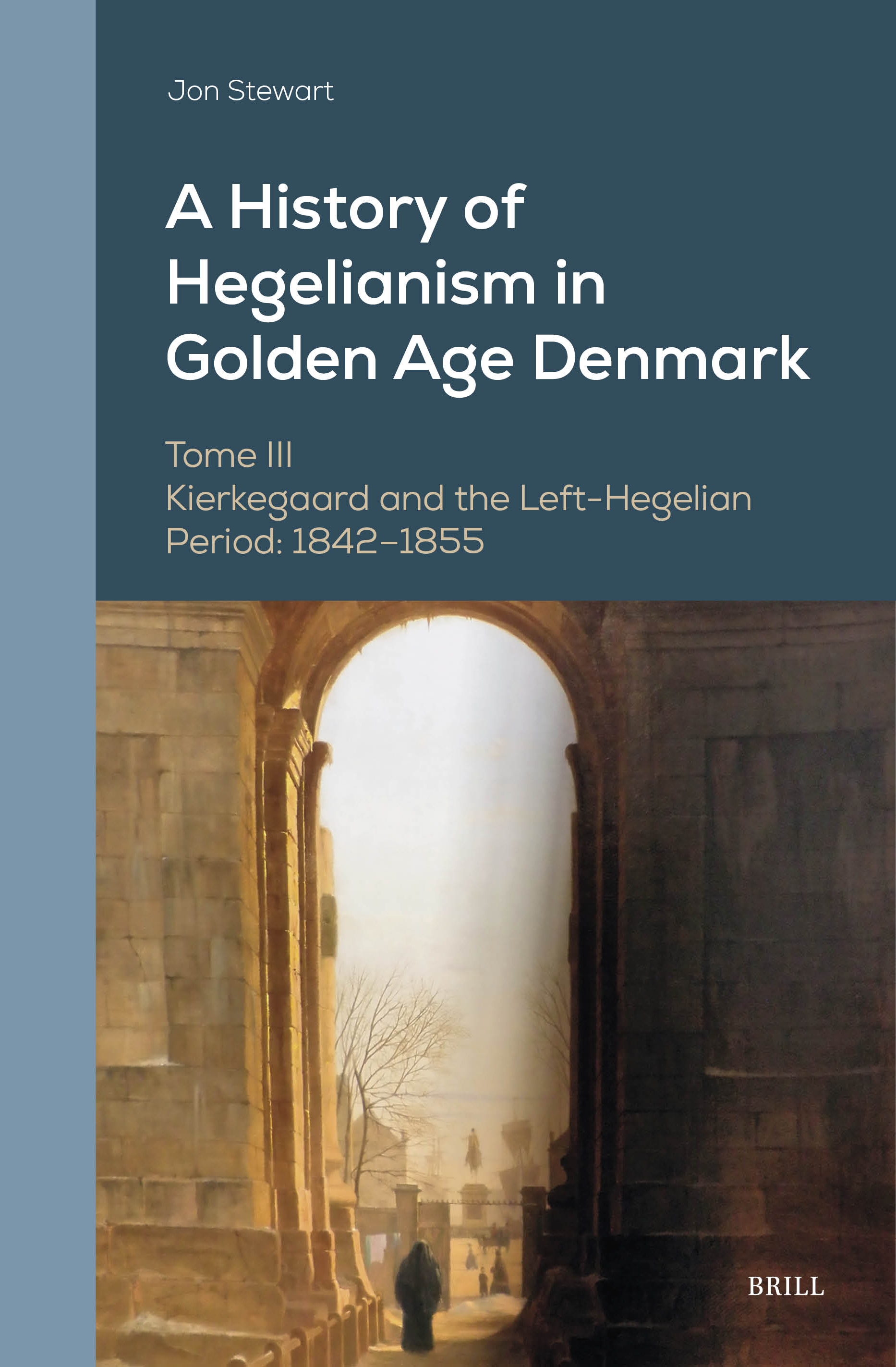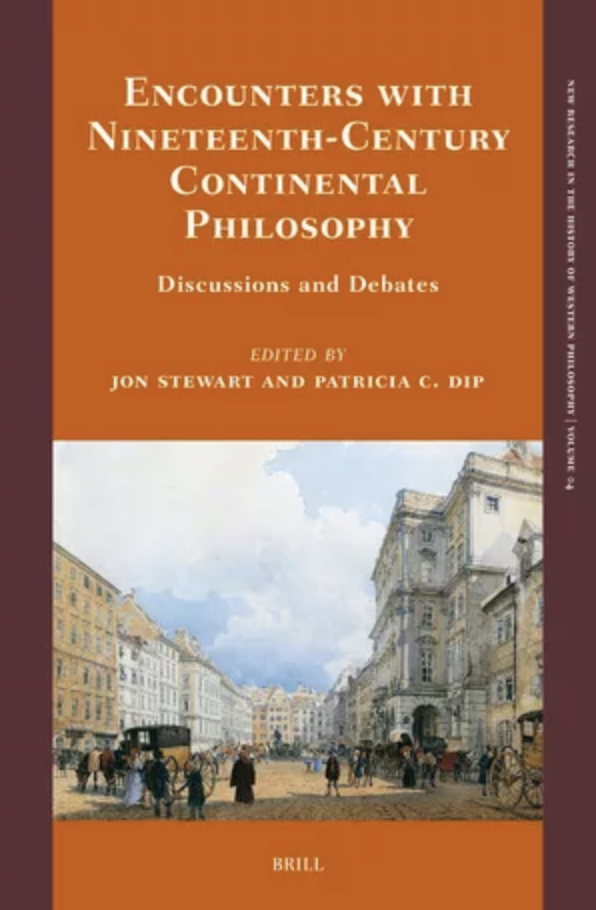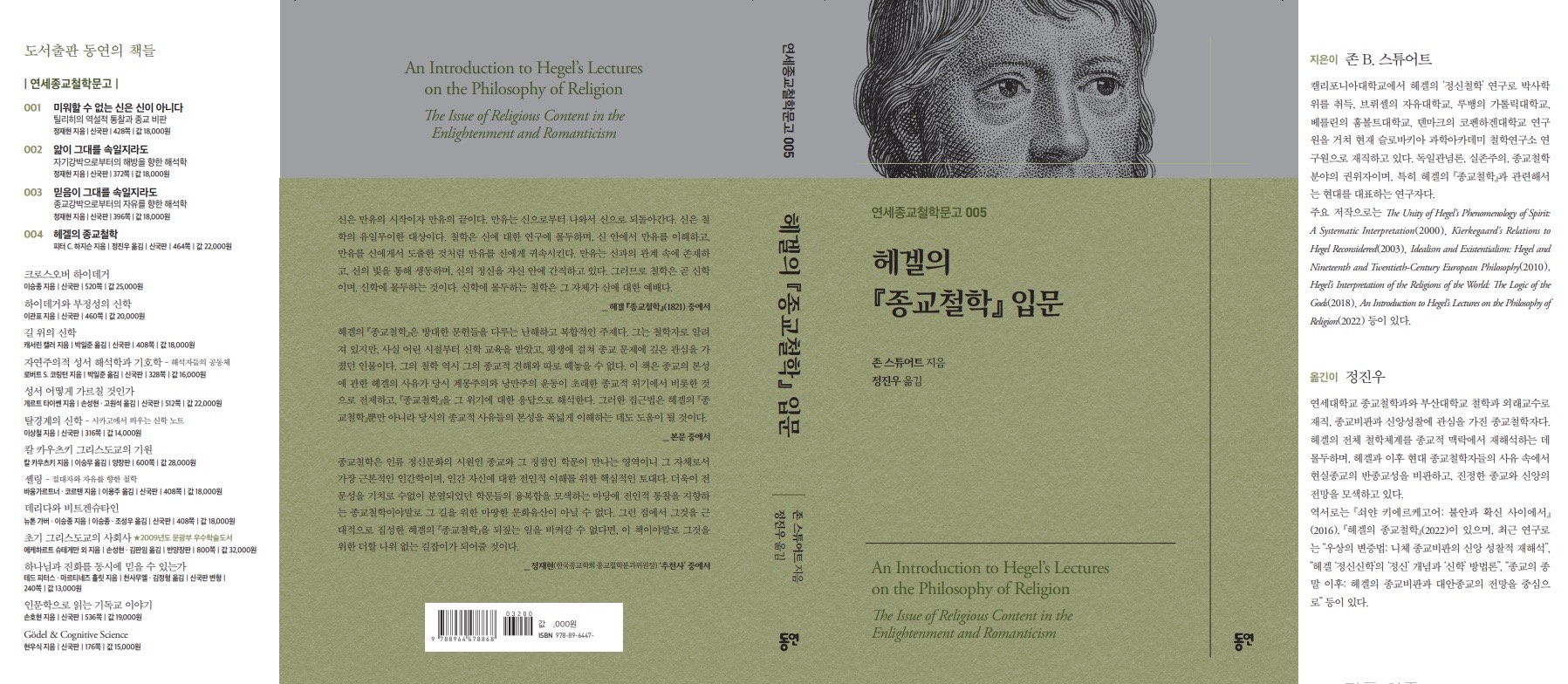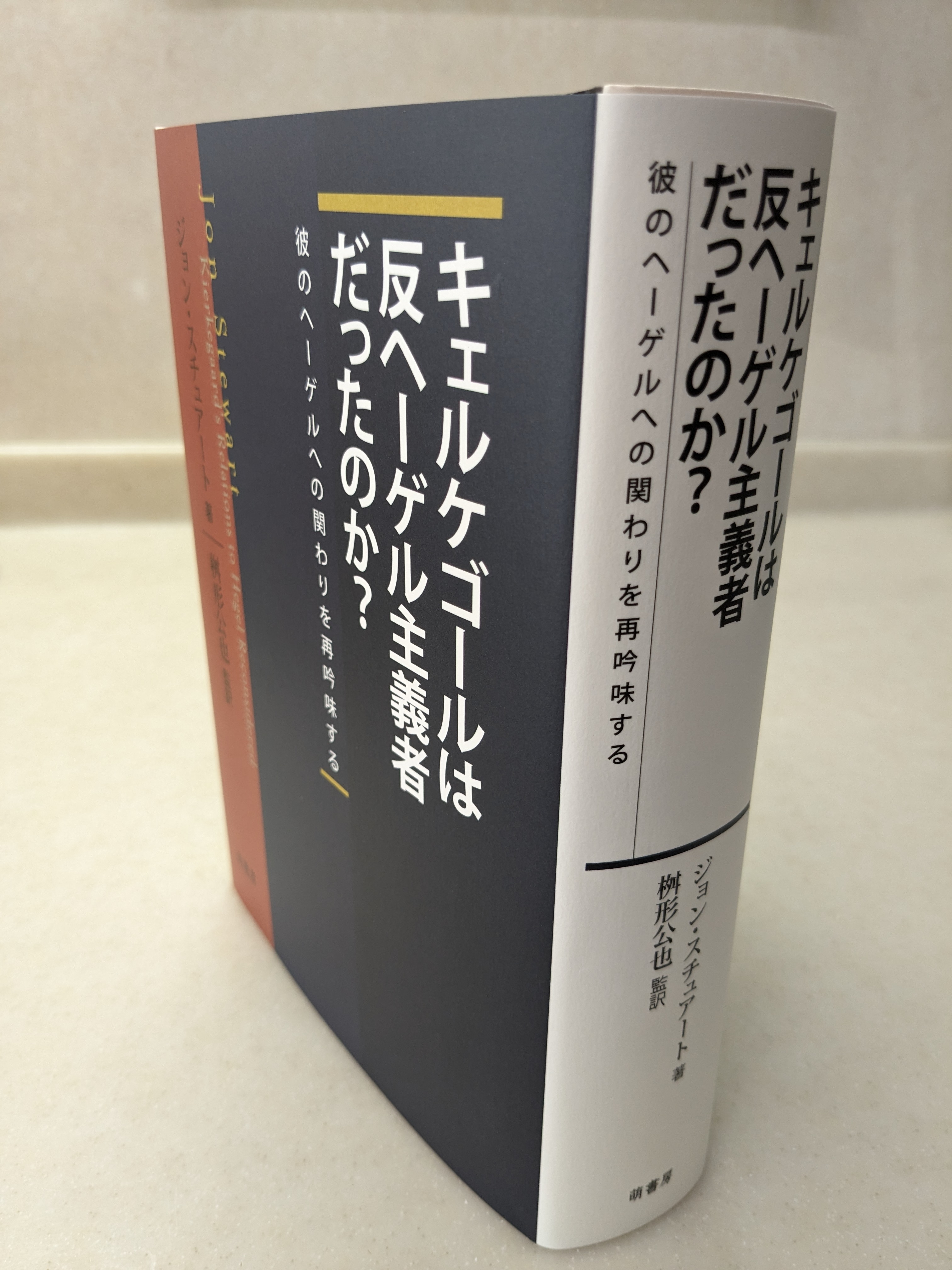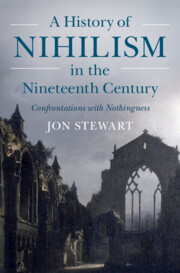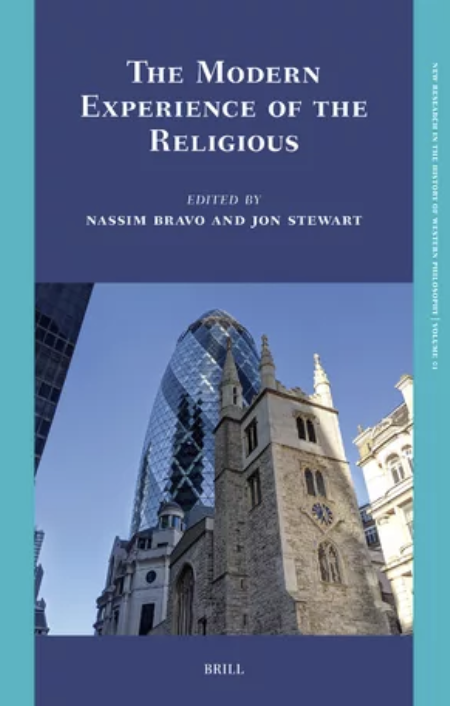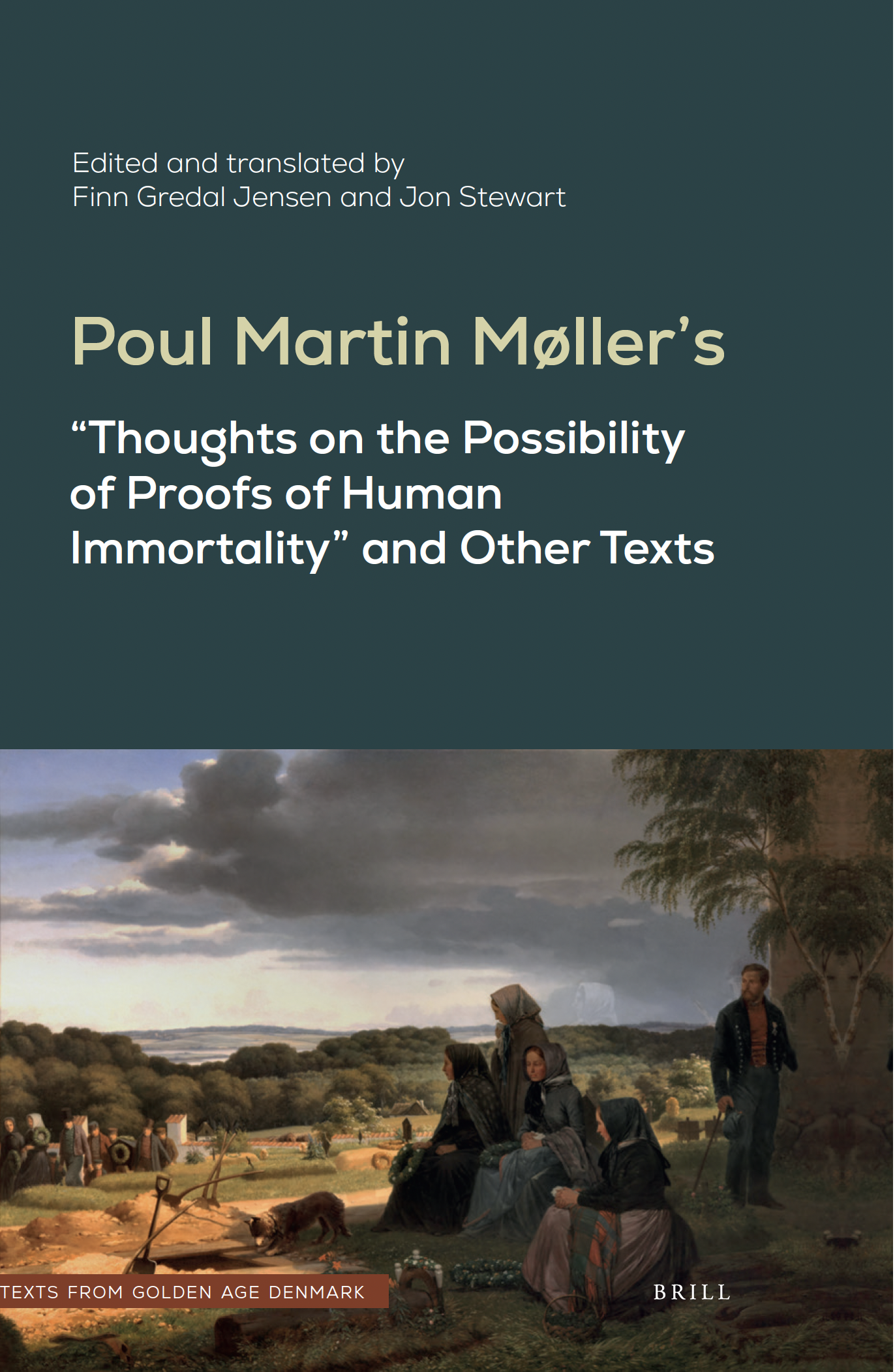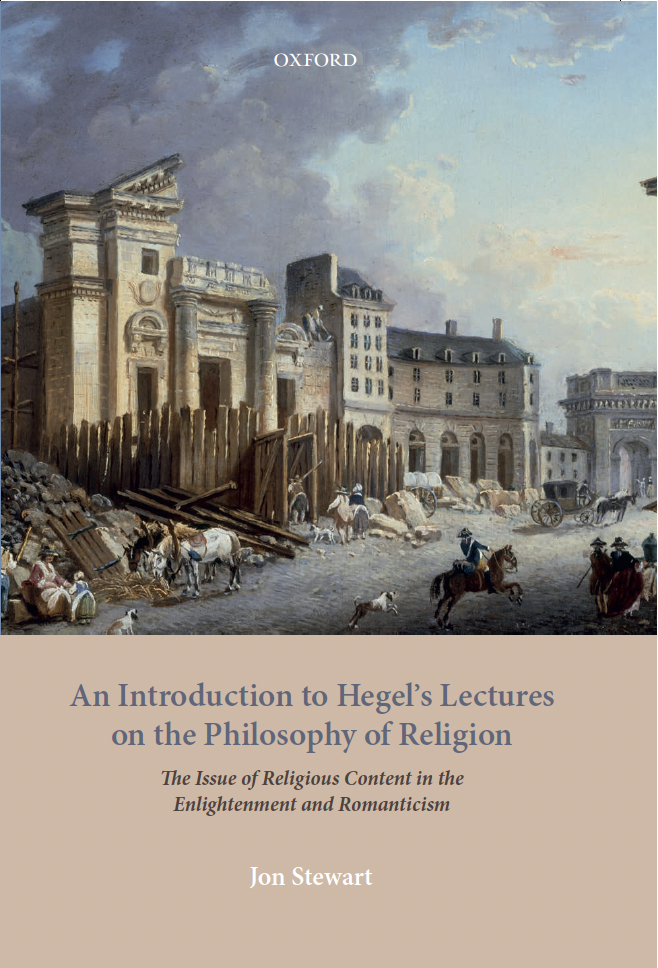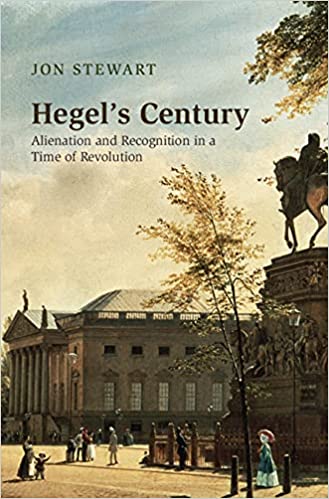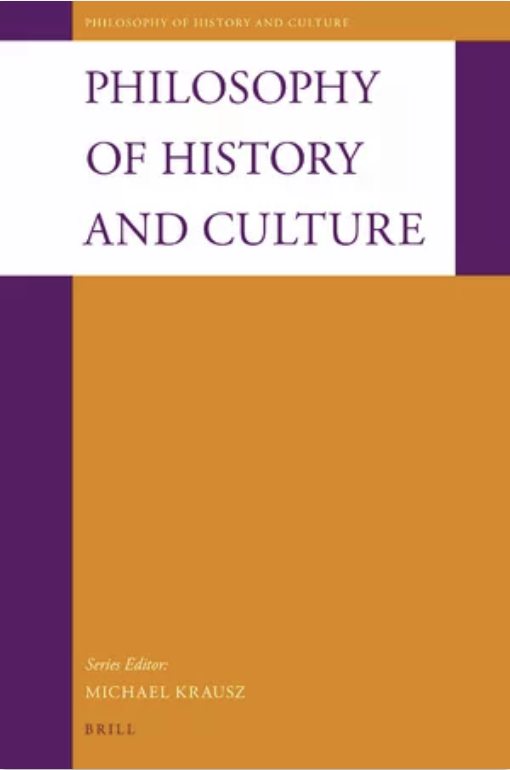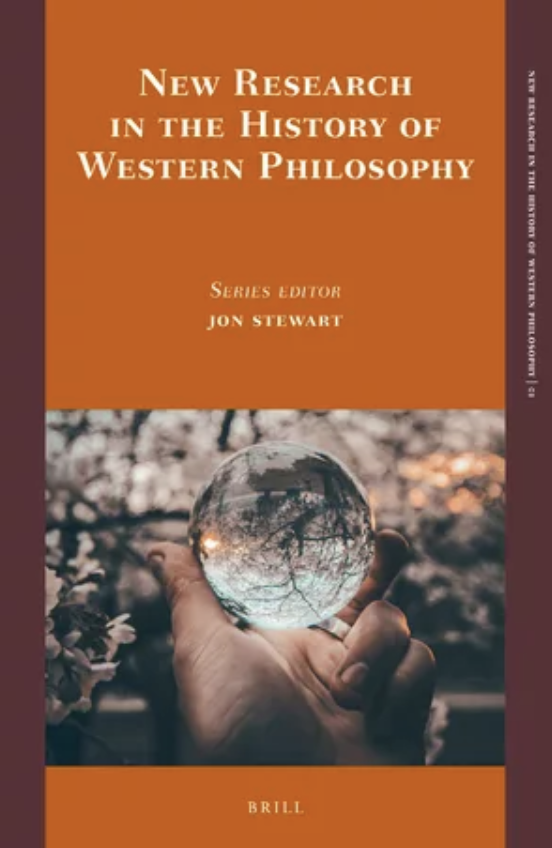|
Jon Stewart Ph.d., Dr.
habil. theol. & phil.
Institute of Philosophy Slovak Academy of Sciences |
|||||||
| Home
|
Curriculum Vitae | Publications | Current Projects | Papers Given |
Web Resources |
||
 |
|||||||
|
Recent Publications and Other News Interview in the Slovak newspaper Aktuality February 9, 2025 ________________________ Just Published: Vol. 1: The Heiberg Period: 1824-1836 2nd Revised and Augmented Edition This
is the first of a three-volume work dedicated to exploring the influence of
G.W.F. Hegel’s philosophical thinking in Golden Age Denmark. The work
demonstrates that the largely overlooked tradition of Danish Hegelianism played
a profound and indeed constitutive role in many spheres of Golden Age
culture.
This initial tome covers the period from the beginning of the Hegel
reception in the Danish Kingdom in the 1820s until the end of 1836. The
dominant figure from this period is the poet and critic Johan Ludvig Heiberg,
who attended Hegel’s lectures in Berlin in 1824 and then launched a campaign to
popularize Hegel’s philosophy among his fellow countrymen. Using his journal
Kjøbenhavns flyvende Post as a platform, Heiberg published numerous articles
containing ideas that he had borrowed from Hegel. Several readers felt provoked
by Heiberg’s Hegelianism and wrote critical responses to him, many of which
appeared in Kjøbenhavnsposten, the rival of Heiberg’s journal. Through these
debates Hegel’s philosophy became an important part of Danish cultural life.
Read more here ________________________
This
is the second volume of a three-volume work dedicated to exploring the
influence of G.W.F. Hegel’s philosophical thinking in Golden Age Denmark. The
work demonstrates that the largely overlooked tradition of Danish Hegelianism
played a profound and indeed constitutive role in many spheres of Golden
Age culture.
This second tome treats the most intensive period in the history
of the Danish Hegel reception, namely, the years from 1837 to 1841. The main
figure in this period is the theologian Hans Martensen who made Hegel’s
philosophy a sensation among the students at the University of Copenhagen in
the late 1830s. This period also includes the publication of Johan Ludvig
Heiberg’s Hegelian journal, Perseus, and Frederik Christian Sibbern’s
monumental review of it, which represented the most extensive treatment of Hegel’s
philosophy in the Danish language at the time. During this period Hegel’s
philosophy flourished in unlikely genres such as drama and lyric poetry. During
these years Hegelianism enjoyed an unprecedented success in Denmark until it
gradually began to be perceived as a dangerous trend.
Read more here ________________________ Forthcoming Soon:
Leiden: Brill This
is the third volume of a three-volume work dedicated to exploring the influence
of G.W.F. Hegel’s philosophical thinking in Golden Age Denmark. The work
demonstrates that the largely overlooked tradition of Danish Hegelianism played
a profound and indeed constitutive role in many spheres of Golden Age culture.
This third tome covers the most exciting and dynamic time in the Danish Hegel reception from 1842 to 1855. This heterogeneous period saw the emergence of several new figures, many of whom were associated with the left-Hegelian school. This period is best known for the publication of the pseudonymous works of Søren Kierkegaard. The present tome places these famous works in the context of other contemporary Danish discussions about Hegel’s philosophy. It shows that many of Kierkegaard’s criticisms had been raised by other Danish thinkers before him and that a large part of his polemical campaign was aimed at the leading figures of the previous periods of the Danish Hegel reception, namely, Johan Ludvig Heiberg and Hans Lassen Martensen. ________________________
Books Recently Published: Encounters with Nineteenth-Century Continental Philosophy With figures such as Fichte, Schelling, Hegel, Kierkegaard, Feuerbach, Marx, Engels, and Nietzsche, the nineteenth century was a dynamic time of philosophical development. The period made lasting contributions to several fields of philosophy. Moreover, it paved the way for the development of the social sciences at the turn of the twentieth century. This volume is dedicated to exploring the rich tradition of nineteenth-century Continental philosophy in its different areas with the main purpose of highlighting the importance of this tradition in the development of the leading streams of thought of the twentieth and twenty-first century.
________________________ Korean Translation of
The Issue of
Religious Content in the Enlightenment and Romanticism Oxford: Oxford University Press 2022. xiii + 277pp. Korean translation: 헤겔 <종교철학> 입문, trans. by Jeong Jin-Woo, Seoul: Dongyeon 2023.
________________________
Published by Karis Academy
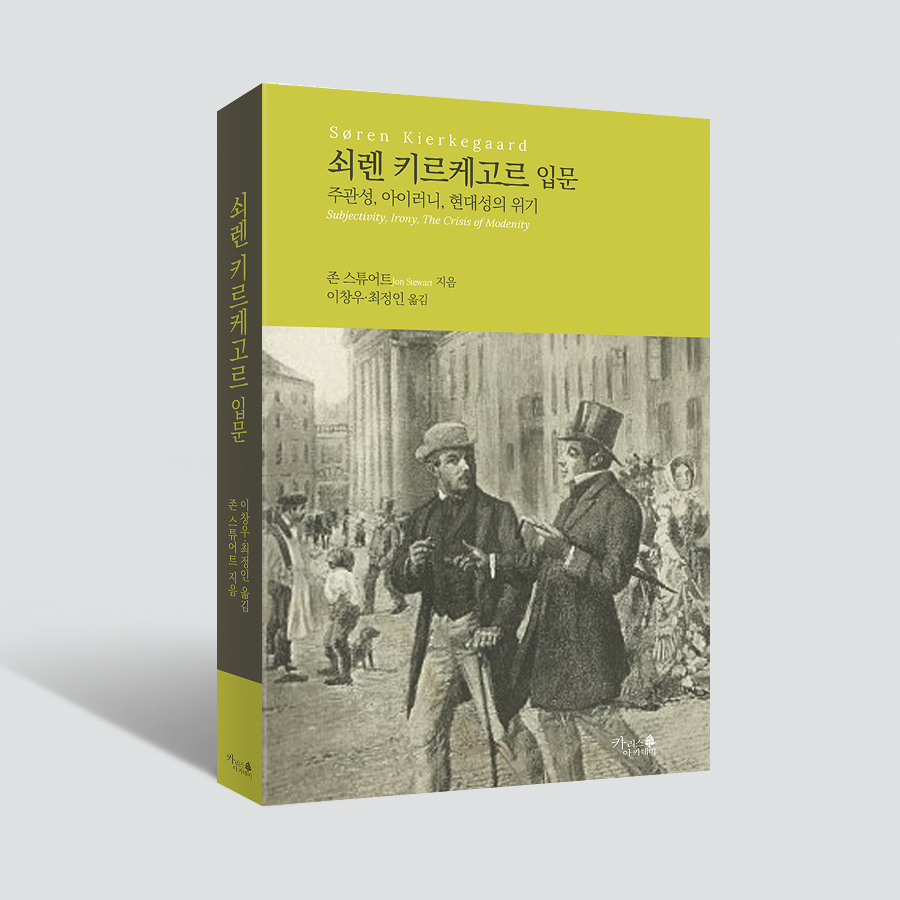 ________________________
Cambridge:
Cambridge University Press 2023 The twentieth century is the period best known for thematizing the issue of nihilism with, for example, the works of the existentialists. For this reason, most philosophical or literary histories of this topic start with Nietzsche and move on from there. This study aims to show that the background for the tradition of twentieth-century nihilism was already well established in the nineteenth century. The thesis of the work is that the true origin of modern nihilism can be found in the rapid development of the sciences in the Enlightenment that established a new secular worldview that gradually displaced the old religious one. The modern scientific view presented a picture of human beings as increasingly small and insignificant in the vastness of space and time. This led to discussions about and literary portrayals of different issues related to nihilism in the first half of the nineteenth century, long before Turgenev and Nietzsche made the term fashionable. Drawing on the importance of Enlightenment science, this work tries to gain insight into the nature and development of nihilism in the nineteenth century. ________________________
The Modern Experience of the Religious Series: New Research in the History of Western Philosophy, volume 1 Volume Editors: Nassim Bravo and Jon Stewart The articles in The Modern Experience of the Religious, edited by Nassim Bravo and Jon Stewart, explore the many ways in which religion was impacted by the emergence of modernity, particularly after the Enlightenment, which underscored the centrality of human reason and thus called into question traditional forms of religiosity. Modernity raised several questions that are studied by the authors of this volume: What should be the role of religion in a secular or pluralistic society? How does the human being relate to God? Can institutionalized religion be compatible with modern values such as civil liberties, pluralism or environmentalism?
________________________
Poul
Martin Møller's "Thought on the Possibility of
Proofs of Human Immortality" and Other Texts
Translated and edited by
Finn Gredal Jensen
and Jon Stewart Leiden: Brill 2022
A classicist, philosopher, and poet, Poul Martin Møller was an important figure in the Danish Golden Age. After the early death of his wife in 1834, Møller was plunged into an extended period of depression. This traumatic event led him to think more profoundly about the question of the immortality of the soul. Møller had long been interested in Hegel’s philosophy, and this same issue was central to the then current debates in the Hegelian school. In 1837 he published his most important philosophical treatise, “Thoughts on the Possibility of Proofs of Human Immortality with Regard to the Latest Literature on the Subject.” This work gave an overview of the German debates about the issue and Møller’s own critical evaluation of them. It was read and commented upon by the leading figures of the Golden Age, such as Johan Ludvig Heiberg, Frederik Christian Sibbern, and Søren Kierkegaard. It proved to be the last important work that Møller wrote. He died in March of 1838 at the age of 43.
________________________
An
Introduction to Hegel’s Lectures on the Philosophy
of Religion: The Issue of Religious Content in the
Enlightenment and Romanticism This work attempts to give a basic introduction to Hegel’s religious thinking by seeing it against the backdrop of the main religious trends in his own day that he was responding to, specifically, the Enlightenment and Romanticism. The study provides an account of the criticism of religion by key Enlightenment thinkers such as Voltaire, Lessing, Hume, and Kant. This is followed by an analysis of how the Romantic thinkers, such as Rousseau, Jacobi and Schleiermacher, responded to these challenges. For Hegel, the views of these thinkers from both the Enlightenment and Romanticism tended to empty religion of its content. The goal that he sets for his own philosophy of religion is to restore this lost content. A detailed account is given of Hegel’s Lectures on the Philosophy of Religion with an eye to the issue of the content of religious faith. It is argued that the basic ideas of the Enlightenment and Romanticism are still present today and that this remains an important issue for both academics and non-academics, regardless of their religious orientation.
________________________
Hegel’s
Century: Alienation and Recognition in a Time of
Revolution
Cambridge:
Cambridge
University Press 2021 The book is the
category winner in philosophy
Slovak Academy of Sciences Prize for Scholarly work for 2021 See the homepage of the Slovak Academy of Sciences Many
students who attended Hegel’s lectures in Berlin in
the 1820s recalled with nostalgia in later life the
stimulating intellectual environment that radiated
from the ideas they heard in his lecture hall. This
atmosphere still existed a decade after his death, as
zealous students continued to flock to Berlin to study
with Hegel’s students in the 1840s. Over the coming
decades these students would come to constitute the
leading lights in Continental philosophy in the
nineteenth century: Feuerbach, Bauer, Kierkegaard,
Engels, Marx, Bakunin, and others. The present work is
an introduction to the history of this development. It
takes as its point of
departure
two concepts that originated
in Hegel’s Phenomenology
of Spirit, namely, alienation and recognition. Hegel’s
students of both the first and the second generation
all appropriated these concepts, among others,
and applied
them indifferent contexts. It is argued that the broad
constellation of problems surrounding these
rich ideas can be seen as providing a central theme of
philosophy in the nineteenth century. The work also sketches how these concepts constituted a broader cultural phenomenon as they spilled over into a number of other fields as well, including religion, politics, literature, and drama. Later in the twentieth century they were also taken up in the then budding social sciences, especially sociology and psychology. These concepts thus represent a key element in the nineteenth century’s contribution to the history of philosophy.
Reviews
"It
is often thought that Hegel's philosophy fell into a
rather deserved obsolescence by the middle of the
nineteenth century. But Hegel's Century
shows that even while Hegelianism waned, Hegel's
concerns with alienation and recognition continued to
set the agenda for European philosophy, both inside
and outside the universities. It offers a magisterial
yet accessible guide to those thinkers, mystics, and
revolutionaries who appropriated these Hegelian themes
for radically new purposes." Mark Alznauer - Northwestern University
“In
this wide-ranging and important study, Jon Stewart
provides a convincing account of Hegel’s influence on
the philosophy that came after him, focusing on the
themes of alienation and recognition. Following these
themes through a range of central thinkers, from Heine
through to Engels, he shows how the shadow cast by
Hegel was a long one – and that we are living with
these issues still. Stewart is an engaging, well
informed and perceptive guide to this central
tradition in the history of ideas, and will bring the
debates alive for a range of different audiences.”
“Among
other
things, this book is to be celebrated for its clarity
and breadth of exposition. In an age of increasing
academic specialization, Stewart shows great range in
tackling such a broad theme from such an
intellectually active century. This work spans the
fields of at least philosophy, theology, literature,
and political theory, and displays a commanding
knowledge of central texts from the period and the
socio-historical context in which they appear.” “Hegel’s
Century is a great book for advanced
undergraduates, graduate students, and even professors
who would like to get a better sense of Hegel’s impact
on the philosophical world, or would like to know a
bit more about the intellectual climate of the
nineteenth century. Its analyses are clear and ________________________ Podcast Interviews:
Interviews on A History of Nihilism in the Nineteenth Century
Hermitix (March 13, 2024):
New Books Network (August 9, 2023):
________________________ Other News: Annual Book Prize of the Slovak Academy of Sciences September 18, 2024 The book A History of Nihilism in the Nineteenth Century: Confrontations with Nothingness (Cambridge: Cambridge University Press 2023) was awarded the annual book prize of the Slovak Academy of Sciences under the category "Top Scientific Publications-Scientific Monographs."
________________________
New Editor-in-Chief of the Journal Filozofia 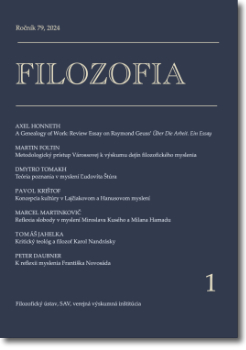 See “Editorial: A View to the Future,” vol. 78, no. 5, 2023, Filozofia, pp. 317-320.
New Editor-in-Chief of the Series: Philosophy of History and Culture (Brill)
________________________
New Editor-in-Chief of the Series: New Research in the History of Western Philosophy (Brill) Today research in the history of Western philosophy is a global phenomenon. The series features the work of leading scholars from the different subfields, regardless of where they are found in the world. Philosophy is a discipline substantially enriched by a broad dialogue of perspectives that transcend the local contexts — the series New Research in the History of Western Philosophy provides a forum for this dialogue. The series also strives to showcase the modern importance and relevance of the history of Western philosophy to pressing issues of our day. It seeks single-author monographs and collected-author volumes that demonstrate that the texts, figures, and debates from the Western philosophical tradition are still very much alive not only in the academic field of philosophy but also in many other areas beyond its conventional boundaries. The series welcomes new approaches and studies on lesser-known figures and texts.

▪
“The Views of the Early Kierkegaard on Actuality and ‘Life’:
A Flashpoint in the Conflict of the Nature of Philosophy,” Discipline
Filosofiche. Revista semestrale, vol. 34, no. 1, 2024, pp. 43-58 (Special
issue, “Possibility is the heaviest of all categories”: On Kierkegaard’s
Reading of Modal Categories, ed. by Ingrid Basso). ▪
“Who Is the Father of Existentialism? The Historical Context
of Kierkegaard’s Criticism of Hegel’s Interpretation of Actuality,” Kierkegaard
Studies Yearbook, 2024, pp. 211-227. ▪
“Kierkegaard’s Form of Writing and Use of Socrates in ‘At a
Graveside,’” Agora. Papeles de Filosofía (special issue: Kierkegaard:
Filosofía, literatura, relixión (Kierkegaard: Philosophy, Literature,
Religion)), vol. 43, no. 1, 2024, pp. 1-16 (online journa, see here). ▪ “The Crisis of Modern Nihilism and its Source,” Fifteen Eighty Four, April 4, 2023 (online journal). ▪
“The Young Kierkegaard as a Student of Liunge’s Kjøbenhavnsposten,”
Kierkegaard Studies Yearbook, 2023, pp. 281-301. ▪ “La persuasión del sentimiento y el amor contra la razón: La crítica kierkegaardiana de la filosofía de Jean Paul,” Estudios Kierkegaardianos. Revista de filosofía, vol. 8, 2022, pp. 121-143. Open access: see here.
▪ “Notes to
a Marxist Phenomenology: The
Body and the Machine in Engels’ The Condition of the
Working Class in England,”
|
|||||||
| Jon
Stewart©2007-2025
|
|||||||
